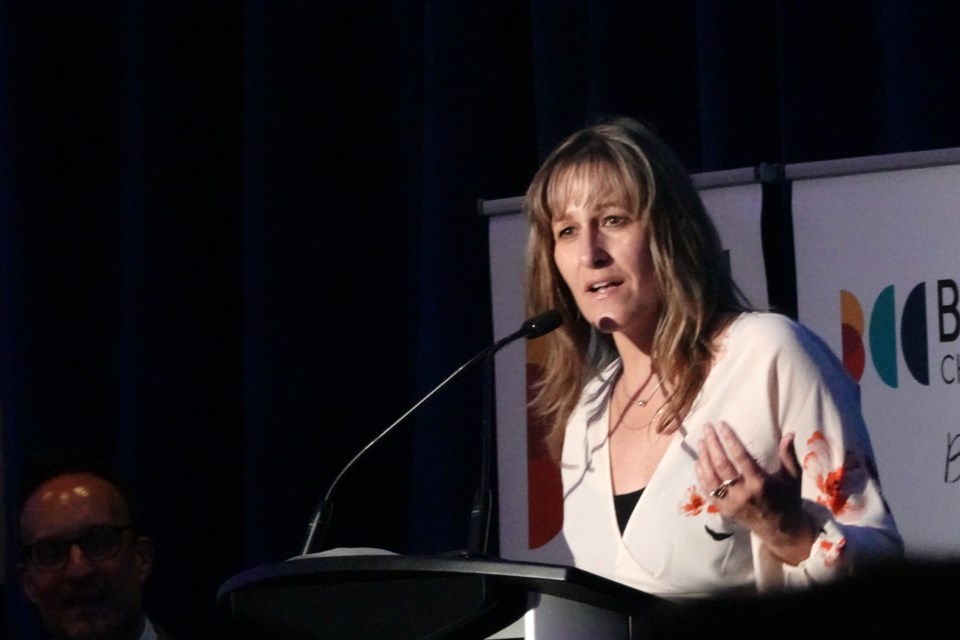The Ford government hasn't addressed it, but calls for a "new deal" between municipalities and the province are only growing louder.
Cities and towns have complained that their revenue tools (mostly property taxes and development fees) don't match their funding needs (years of downloading on housing and social services).
That's true, said StrategyCorp's Sabine Matheson, a municipal politics expert of more than 30 years. She's one of the lead authors of an annual survey of municipal chief administrative officers (CAOs). The 2024 version was released last week.
According to the survey, problems like homelessness are "even and widespread" across the province, with municipalities that have never dealt with the issues now facing encampments, she said.
“In the past, we did a lot of awareness campaigns but now we are at a point where we don’t have the capacity, so we don’t want to send people somewhere that there isn’t any room," one CAO is quoted as saying in the survey.
"There is such a lack of strategy and support to address it from the provincial government as they have shown no indication of doing anything about [mental health and addiction]," another said.
"I do think (a new deal is) inevitable," Matheson said. "But beaver dams can block streams before they burst, so I think we've got a beaver dam right now."
CAOs outlined dire fiscal situations in the survey.
"We have a negative balance in the sanitary reserve. We have zero in the parks reserve. The roads reserve is about to run out of money. We will be scraping and redlining next year to have funding," one said.
Colin Best, president of the Association of Municipalities of Ontario (AMO), said in his address to the conference last week that he was "disappointed" not to see a new deal commitment from the Ford government yet.
Municipalities will be on the hook for over $250 billion in infrastructure costs over the next decade, he said.
"The idea that we can do that under the current fiscal arrangements makes no sense. The idea that Ontario will thrive and prosper without that level of municipal infrastructure investment doesn’t make sense either," he said.
"Structural and systematic problems will never be fixed if our partners pretend they don’t exist."
CAOs worried about that as well.
“Thirty-six per cent of our infrastructure needs to be replaced within 10 years, and it’s machinery and equipment in the poorest category," one said.
It's not a new issue, said the Association of Municipal Managers, Clerks and Treasurers of Ontario (AMCTO), which represents municipal workers.
"This has been an ongoing theme across many municipalities that continue to face immense financial pressures, and struggle with recruiting and retaining local government talent to build strong organizational cultures," it said in a news release responding to the survey.
Ontario Big City Mayors chair Marianne Meed Ward has been at the forefront of the new deal push.
Meed Ward, who is also the mayor of Burlington and an AMO board member, confronted Ontario's finance minister last week at the conference's "bear pit" — a chance for municipal leaders to question provincial ones in a conference hall full of their colleagues.
Municipalities' fiscal relationship with the province hasn't changed in AMO's 125-year history, despite the challenges being far different now, she said.
"Allocation programs are unpredictable, and it makes municipalities compete with each other for scarce dollars. It's really kind of the Hunger Games of municipal funding programs," she said, calling for a fiscal review long sought by AMO.
Finance Minister Peter Bethlenfalvy avoided the issue, instead listing some funding programs.
"We thank you for raising that issue repeatedly. We're working together," he said.
Speaking with The Trillium after the conference, Meed Ward said she's thankful for the funding, but called on the province to shift away from allocation-based funding.
"You can't plan major capital, multimillion-dollar projects that unfold over a period of years, if you don't know the funding for the capital or the operating is going to be there.
As part of her new deal pitch, NDP Leader Marit Stiles pledged to upload highways, take a bigger role in housing, and pay for half of transit funding and 90 per cent of ambulance services. Green Leader Mike Schreiner has made similar promises. Liberal Leader Bonnie Crombie has also pledged a new deal, with details to be worked out in the future.
Meed Ward said she was pleased all three opposition leaders are on the same page. Pointing to her "Solve the Crisis" campaign, which calls for more leadership from the province on homelessness and mental health, she said she won't give up until the province bends.
"I have had private sector, non-profit, mental health agencies, municipal councillors and mayors saying, 'This speaks to us. How do we get involved?'" she said. "We are just getting started."
Timmins Mayor Michelle Boileau, also an AMO board member, agreed. She added that AMO isn't making specific demands.
"All we're asking for, really, is to be able to sit down together with the government to be able to conduct a review," she said. "And so we feel like that's a reasonable ask."




